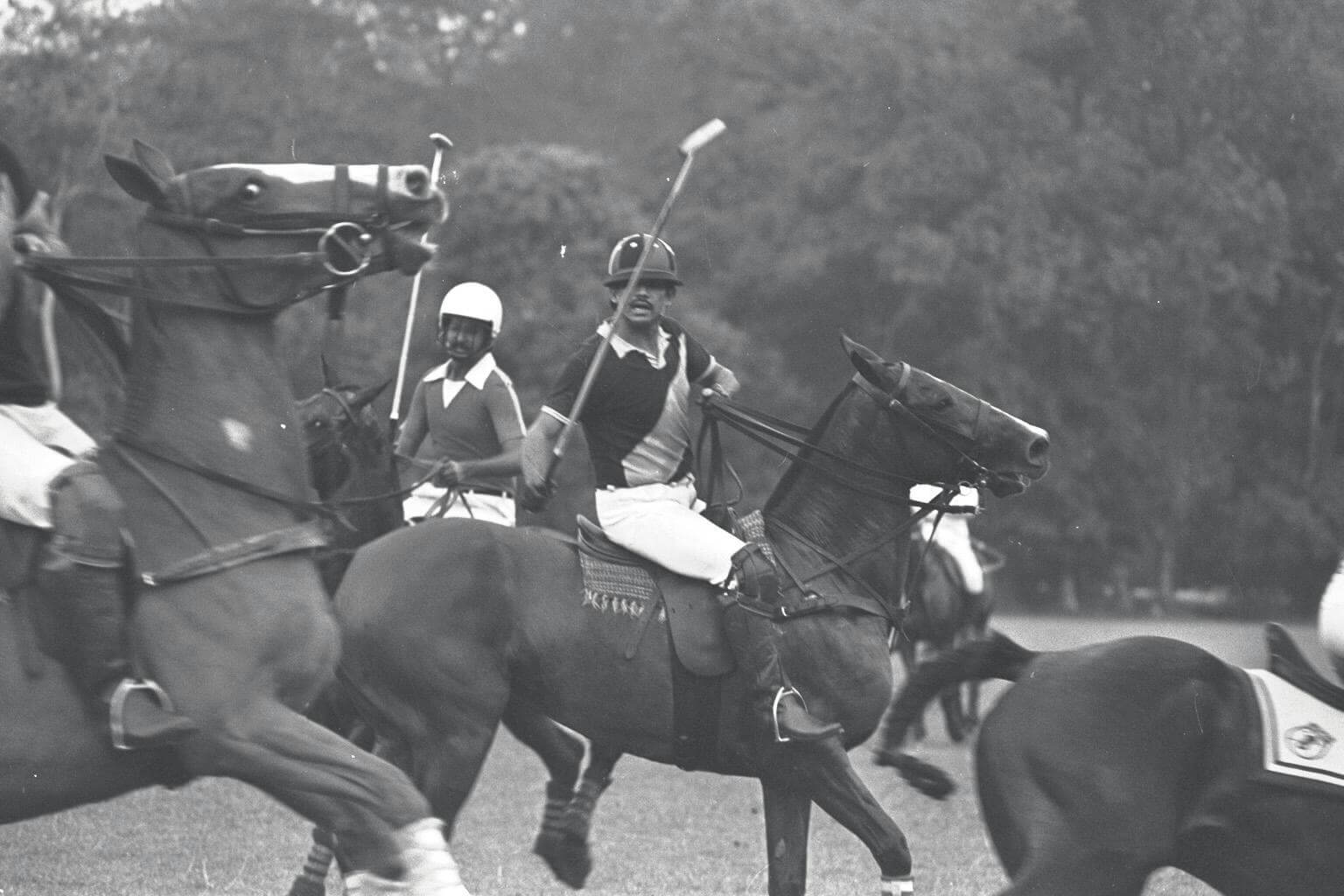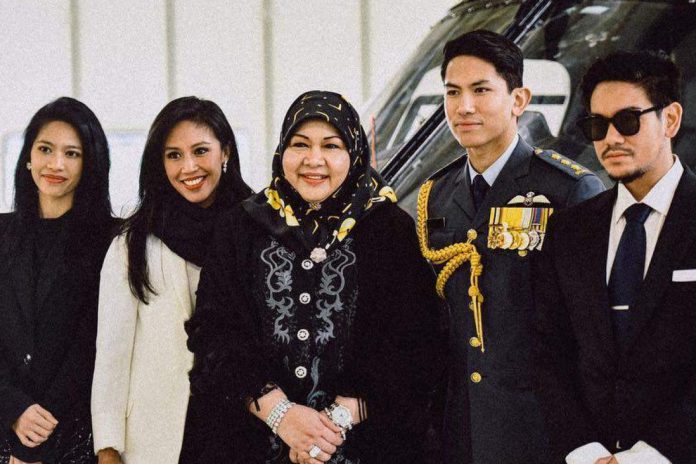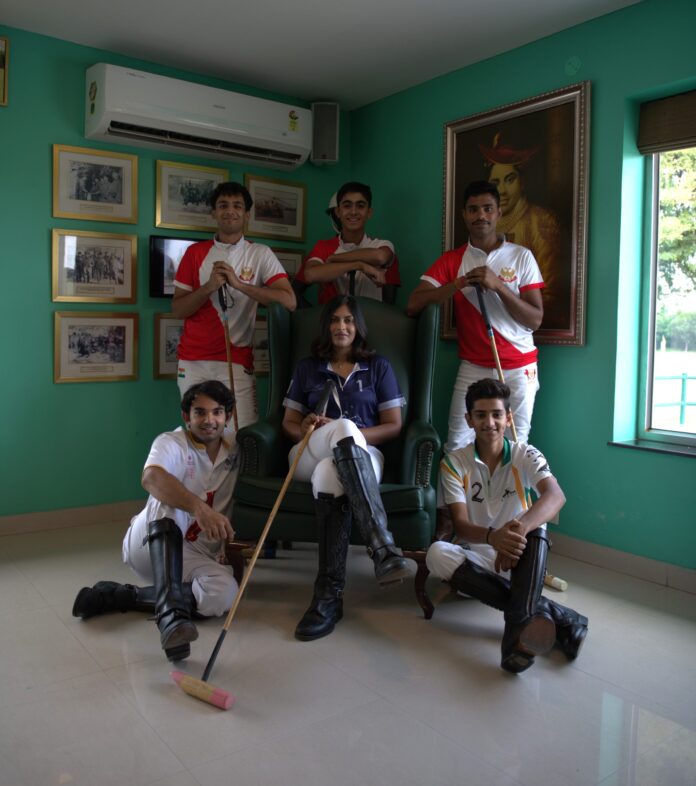BRUNEI ROYALS IN POLO: PRINCE ABDUL MATEEN AND PRINCESS AZEMAH BOLKIAH

Since antiquity, Polo has been known to be the game of Kings and so it has always had a quaint royal touch to it. For centuries it has enjoyed continued patronage among the ruling class. In pre-modern times it was thought of as a simulating past-time, that challenged players to rapidly adapt to the ever-changing conditions on the field. The prime reason for the sport’s popularity with royals has been linked to the mental, and to a certain extent, the physical demands of the game, skills that are also required to be exhibited on a battlefield. It was therefore considered a fitting pastime for the warrior class.
While a number of royal families across the world still patronize the sport, very few have members of their families participating and excelling in it. Of those, the Brunei royal family has long considered itself a staple in the polo world.
A tour d’horizon of the royal family’s legacy in the sport, with a special section on the talented sibling duo Prince Abdul Mateen and Princess Azemah Ni’matul Bolkiah.
HISTORY OF BRUNEI’S ROYAL FAMILY
The royal family of Brunei can trace its roots back to the late fourteenth century. While very little is known of the family’s early history due to the unavailability of official records, it is known that the kingdom was ruled by a succession of powerful emperors. At its height, the family had controlled a thriving empire in southeast Asia. While it was centered in Brunei, the territories it controlled covered vast swathes of coastal land in the northern Borneo region and the Philippines. In the 17th and 18th centuries, the empire witnessed a steady decline after much of its territories fell to European colonial powers. In the 19th century, after centuries of decline, the empire finally ceased to exist as it ceded to British colonial power.

In 1984, nearly a century later, Brunei became an independent nation governed by the national tradition of Islamic Monarchy and with the strong involvement of the royal family.
Its current ruler, Prime Minister Hassanal Bolkiah, a member of the House of Bolkiah that descends from the first sultan of the dynasty, holds various portfolios in the government like finance and defense. While the sultan has been known for his revolutionary vision on the public policy side, little has been said for his love of sports, especially polo. In his younger years, the sultan was an active member of the polo circuit, and at one point even played on the side of the 61st Cavalry Indian Army team. In recent years, he has been known to regularly attend polo events, especially after two of his children took up competitive polo. Additionally, a few years back, on the occasion of the sultan’s 70th birthday celebrations, a friendly polo match had been organized between the Brunei team and the 61st Cavalry Indian Army team, as an ode to his long association with the latter. The sultan had specially taken time out for this particular match, despite his tight schedule. A testimony to his passion for polo.
BRUNEI’S VERSION OF THE BRITISH ROYALS: PRINCE MATEEN AND PRINCESS AZEMAH BOLKIAH
While a lot of members of Brunei’s royal family have competed on the national polo team, only the brother-sister duo of Prince Abdul Mateen and Princess Azemah Ni’matul Bolkiah has been able to leave a lasting legacy on the sport.
Prince Abdul Mateen, Sultan Hassanal Bolkiah’s fourth son, has been known to excel in a plethora of sporting activities. His social media accounts are a testament to a wide array of interests like golf, football, and martial arts among others. But Polo is his mainstay. As a member of Brunei’s national polo team has competed in a number of international polo events including the prestigious Southeast Asian Games (SEA). While he is sixth in line to the oil-rich nation’s throne, his royal links make no difference to his participation on the field. Despite the encompassing regal aura, the Prince often emphasizes that his royal heritage has little influence on the pitch. When talking about competing with family members on the field, especially his sister Princess Azemah Ni’matul Bolkiah, he mentions that they have been very old teammates, and those family considerations hardly ever come up. The trick, he emphasizes is to treat your sibling as a teammate. The young royal is fiercely devoted to polo and says he hopes to drive his team’s quest for a gold medal at top polo championships across the globe. A few years back, he had also been part of the team that had a fantastic run at the Southeast Asian Games (SEA) in Malaysia and ended up with a bronze medal at the tournament. ‘A stepping stone to achieving that dream’ he asserts.


Brunei has had a long passion for excellence in polo, but that was only to the extent that it concerned men. Breaking the mold is another young royal, Princess Azemah Ni’matul Bolkiah. The daughter of Sultan Hassanal Bolkiah of Brunei and his second wife, Mariam Aziz, Azemah has followed in the footsteps of her father. Of the changing environment that beckons more women into the sport, she regularly touches upon the idea that Brunei is moving in a positive direction in terms of gender equality, but that more would need to be done. ‘ We need more women playing.’, she quips. Despite her lack of experience during her initial few outings, Azemah quickly adapted and has since been representing the Brunei team at high-profile international tournaments. Along with her brother, she too had been part of the national team that competed at the Southeast Asian Games (SEA) in Malaysia and had played a pivotal role in the team’s winning of the bronze medal.





